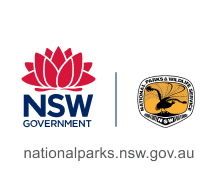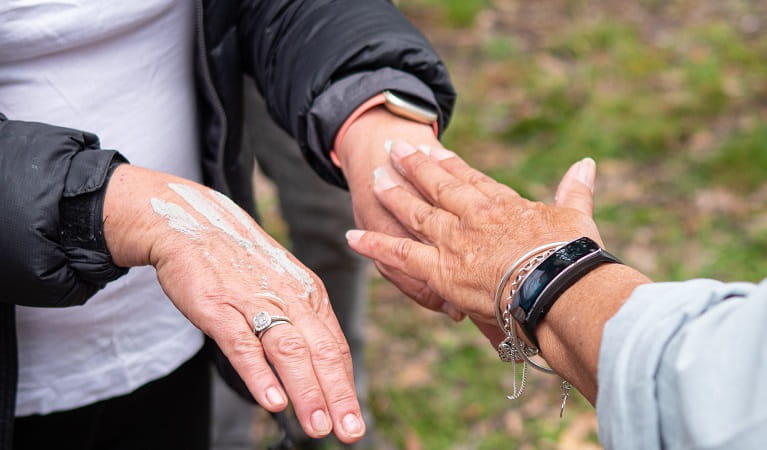School excursion
Living Country living culture
Mimosa Rocks National Park
Overview
Join us for Living Country, living culture – a Stage 1 HSIE excursion in Mimosa Rocks National Park. An Aboriginal guide will help students understand the importance of culture and caring for Country.
Read more about Living Country living culture
This is an interactive excursion for young students, with sensory and hands-on activities.
Meeting at Gillards campground, students can look forward to a fun day of learning about the culture and Country of the Yuin People, led by a local Aboriginal guide. They’ll find out about bush tucker and medicine, the role of women in Yuin culture, traditional weaving, art, music and dance, and how the Yuin People manage and protect Country.
Aboriginal people have been walking the earth for thousands of years. They continue to have a strong connection to country, and traditional practices and stories play an important part in modern life. Students will come away with an appreciation of the rich Aboriginal culture that exists in their region. They'll make fundamental links between traditional stories, land, Country and languages.
For program outline, safety and practical information about this excursion, see info for teachers
| Stage | Stage 1 (Years 1-2) |
|---|---|
| Learning area | HSIE |
| Student outcomes |
GE1-1. Describes features of places and the connections people have with places GE1-2. Identifies ways in which people interact with and care for places HT1-1. Communicates an understanding of change and continuity in family life using appropriate historical terms HT1-2. Identifies and describes significant people, events, places and sites in the local community over time HT1-3. Describes the effects of changing technology on people's lives over time HT1-4. Demonstrates skills of historical inquiry and communication ST1-5LW-T. Identifies how plants and animals are used for food and fibre products ST1-10ES-S. Recognises observable changes occurring in the sky and on the land and identifies Earth’s resources ST1-2DP-T. Uses materials, tools and equipment to develop solutions for a need or opportunity |
| Objectives |
Students will:
|
Excursion details
- When
Monday to Friday, between 10am and 1pm, during school term.
- Availability
- Guided. Available on request, subject to staff availability.
- Where
- Gillards campground
- Duration
- 1-2 hr
- Grading
- Easy. This is a guided walk with activities on unsealed bush tracks.
- Price
-
$350 per group of 25 students. $14 per extra student, up to maximum group of 30 students.
- Accessibility
- No wheelchair access
- Meeting point
- Gillards campground picnic area, Mimosa Rocks National Park.
- Equipment
provided - Yes
- Booking
- If you would like to organise a NPWS school excursion please get in touch with local staff or use the 'Enquire' link for the online form.
Local alerts
For the latest updates on fires, closures and other alerts in this area, see https://www.nationalparks.nsw.gov.au/education/stage-1-hsie-living-country-living-culture-mimosa-rocks-national-park/local-alerts
Operated by
- School excursion inquiries - Far South Coast
- 02 6495 5000
- discovery.scr@environment.nsw.gov.au
Park info
- in Mimosa Rocks National Park in the South Coast region
Mimosa Rocks National Park is always open but may have to close at times due to poor weather or fire danger.
Info for teachers
All the practical information you need to know about Living Country living culture.

